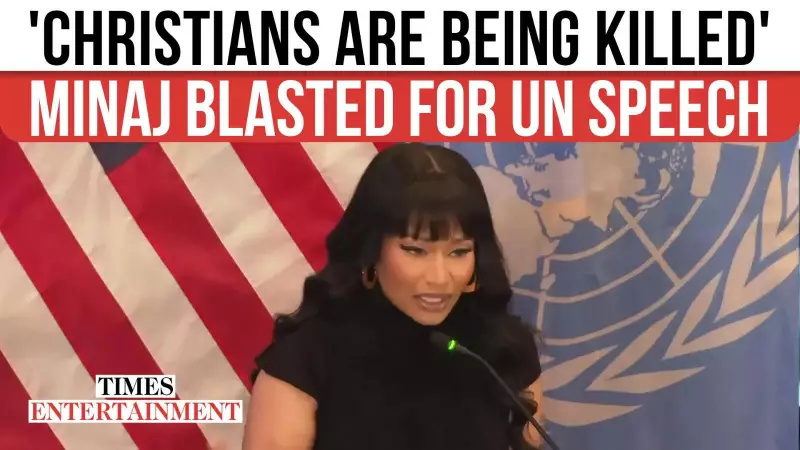
International rap sensation Nicki Minaj has ignited a massive online controversy following her remarks at a United Nations-linked event where she expressed gratitude to former US President Donald Trump. The incident occurred during a speech addressing the growing violence against Christians in Nigeria, creating immediate polarization across social media platforms.
The UN Event That Started the Storm
The controversy unfolded on November 19, 2025, when Minaj participated in a UN-associated gathering hosted by the US Embassy. During her address, the superstar highlighted the escalating violence targeting Christian communities in Nigeria, bringing international attention to a crisis that has drawn increasing global concern.
In what became the most controversial moment of her speech, Minaj specifically thanked President Donald Trump for prioritizing the issue of religious persecution. She commended his leadership in advocating for religious protection measures, a statement that immediately triggered widespread backlash across various online platforms.
Immediate Online Reactions and Divided Responses
The internet exploded within hours of Minaj's comments, with critics accusing the artist of political posturing and inappropriate alignment with the controversial former president. Social media platforms became battlegrounds as users debated the appropriateness of her statements at an international forum.
However, the reaction wasn't uniformly negative. Minaj's comments received strong support from Nigerian Christians and activists who have been seeking international attention for their plight. Many praised her for using her massive platform to amplify voices that have often been marginalized in global discussions about religious violence.
The Broader Implications
The incident highlights the complex intersection of celebrity influence, international politics, and human rights advocacy. Minaj's decision to acknowledge Trump's involvement in religious protection initiatives has opened discussions about the role of celebrities in diplomatic spaces and how political alliances can affect humanitarian messaging.
As the online meltdown continues to evolve, the episode demonstrates how statements at international forums can instantly translate into global conversations, particularly when they involve high-profile figures and controversial political personalities. The division in responses underscores the polarized nature of contemporary political discourse and the challenges of addressing humanitarian crises in such an environment.





